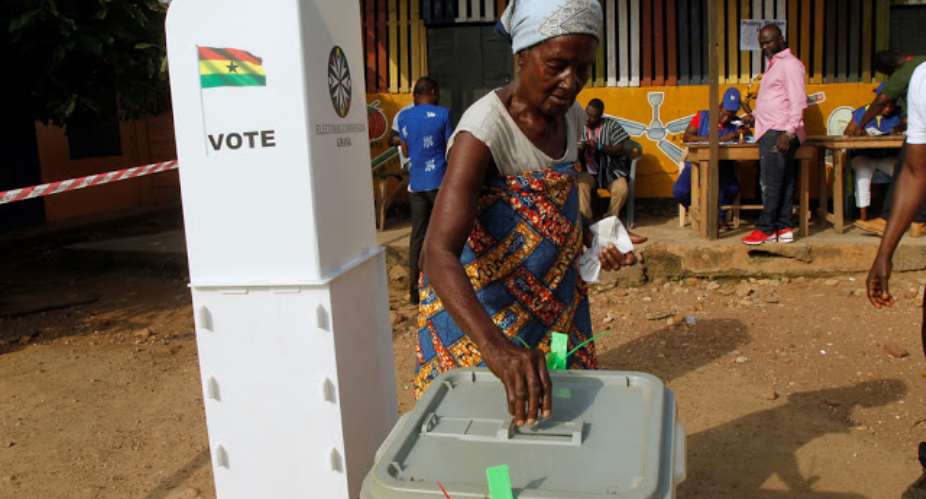Elections play a very crucial role in both developed and developing society but just as the democratic societies are characterized, among other things, such as fraud and irregularities, the presidential elections in Africa are also characterized by certain disputes.
Election disputes which often arise in many African countries, notably are eligibility and the dispute over contesting the results. In other words, generally, elections in Africa, are characterized by several causes of election disputes.
In most African states, the Electoral Commission or a body responsible for managing the electoral process, the Independent National Electoral Commission or the National Independent Electoral Commission, plays a significant role to safeguard and manage the electoral processes.
Focusing on the attention of the United Nations, there is a legal framework for elections, that is to say, the Electoral Commission verifies the regularity of the acts and the validity of the election results.
The Electoral Commission is seen as a body that aims to verify the authenticity or accuracy of the result of the election, however, in Africa, recent polls have been marked with fraud, irregularities, and violence.
Electoral fraud refers to all the irregularities that may occur during an election. It may relate to the electoral operations themselves, such as stuffing of ballot boxes with ballot papers in favour of a candidate.
The highest rate of vote-rigging occurs during the election period. At the pre-electoral stage, some governments hinder the planning process by the following means:
- Activities such as staff training and civic education leading to equal opportunities are deliberately underfunded.
- Governments in power can hamper the voter registration process by deliberately failing to fund it in a timely manner or by interfering in the acquisition of appropriate systems.
- During elections, electoral fraud includes identity theft, multiple voting, deliberate shortages of materials, closing polling stations before the scheduled time, etc.
- When calculating the votes, tally sheets are falsified, exchanged or excluded from the final tally by cancelling valid ballots due to inappropriate reasons.
Electoral fraud seeks to change the will of the electorate and it appears in areas unforeseen by the legislator. The fraudster can work in secret, use flaws in a text or misinterpret it. Fraud is organized in obtaining political power at any level.
In reality, the Electoral Commission must be a neutral body to work for all the political parties contesting in elections, but in Africa where a free and fair election is questioned sometimes, the EC works in favour of the president or the party in power. The reason in recent years, Africa has been marked by post-election violence, as well as significant suspicions of fraud.
Election frauds and irregularities in developing countries can only be eliminated by electronic device voting system used by the developed countries, however, there are measures that can reduce it.
General suggestions to eliminate or reduce electoral fraud to a minimum are:
- Improving transparency is the best way to prevent any form of fraud, whether at polling stations, during the counting of votes or during the data aggregation process.
- Improving transparency may require legal or procedural reform, and may also require the full deployment of non-partisan observers or effective party monitoring.
- The introduction of mechanisms that can ensure the continuous monitoring of each electoral preparatory process, by the electoral administration.
- The development of a new informed approach to the prevention of irregularities by the electoral administration. Following a concept that prevents electoral fraud by prohibiting the conditions that would facilitate it.
- Political goodwill is a key element, adequate funding, accurate voter registers, equality of opportunity, appropriate legal frameworks and many other solutions are possible if the governing and opposition parties demonstrate goodwill.
- Finally, all stakeholders, the media, the justice system, civil society, and the security forces must play their mandatory role effectively, without fear or favouritism.





 Lay KPMG audit report on SML-GRA contract before Parliament – Isaac Adongo tells...
Lay KPMG audit report on SML-GRA contract before Parliament – Isaac Adongo tells...
 Supervisor remanded for stabbing businessman with broken bottle and screwdriver
Supervisor remanded for stabbing businessman with broken bottle and screwdriver
 NDC watching EC and NPP closely on Returning Officer recruitment — Omane Boamah
NDC watching EC and NPP closely on Returning Officer recruitment — Omane Boamah
 Your decision to contest for president again is pathetic – Annoh-Dompreh blasts ...
Your decision to contest for president again is pathetic – Annoh-Dompreh blasts ...
 Election 2024: Security agencies ready to keep peace and secure the country — IG...
Election 2024: Security agencies ready to keep peace and secure the country — IG...
 People no longer place value in public basic schools; new uniforms, painting wil...
People no longer place value in public basic schools; new uniforms, painting wil...
 'Comedian' Paul Adom Otchere needs help – Sulemana Braimah
'Comedian' Paul Adom Otchere needs help – Sulemana Braimah
 Ejisu by-election: Only 33% of voters can be swayed by inducement — Global InfoA...
Ejisu by-election: Only 33% of voters can be swayed by inducement — Global InfoA...
 Minority will expose the beneficial owners of SML, recover funds paid to company...
Minority will expose the beneficial owners of SML, recover funds paid to company...
 Prof. Opoku-Agyemang has ‘decapitated’ the NPP’s strategies; don’t take them ser...
Prof. Opoku-Agyemang has ‘decapitated’ the NPP’s strategies; don’t take them ser...
